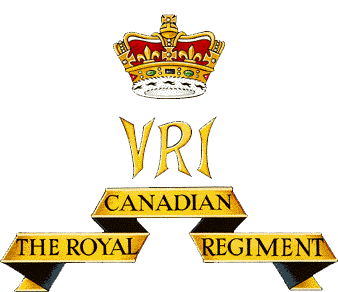
Standing Orders of
The Royal Canadian Regiment
(1935)
XIX Employed Men Generally
1. The employment of any soldier is, and must always be regarded as, secondary to his duty and efficiency as a soldier, and selections for employment will be made from among fully trained soldiers only. Should the efficiency of a soldier appear to suffer by reason of his employment he will be returned to duty and his place taken by another soldier.
2. Should the officer under whom a soldier is employed desire his return to duty, he will submit to the Adjutant a recommendation to that effect accompanied by his reason in writing as a guide for the future employment of that soldier.
XX Officers’ Servants
1. Every regimental officer is allowed to employ one soldier as his servant. The servant should belong to the same company as his master and will be reposted if necessary.
2. Officers’ servants will attend Weapon Training, annual Field Training, quarterly Judging Distance and all ‘strong as possible’ Parades.
3. Servants will keep the passages in which their masters’ rooms are situated clean and tidy.
4. Any non-commissioned officer who has occasion to confine and officer’s servant will immediately inform the Company Sergeant-Major of the man’s Company who will at once notify the officer by whom he is employed.
5. The servant of an officer who is sick in quarters is not required to attend any parades or perform any duties.
6. No servant will be permitted to sleep elsewhere than in his barrack-room without the sanction of the Commanding Officer.
7. Officers’ servants may be granted permission to wear plain clothes at the discretion of their Company Commanders.
XXI Married Soldiers
1. A soldier is not permitted to marry without the approval of his Commanding Officer. A soldier marrying without such approval forfeits all present and future claim to the privileges of the Married Establishment.
2. All marriages, births and baptisms are recorded in the attestation paper of the soldier concerned, and every soldier on marrying, will render his marriage certificate to the Adjutant through his Company Commander. Subsequently he will similarly report the births of any children and their baptisms, together with certified extracts from the Parish or other Registers.
3. Married soldiers will be responsible that their wives and children understand and comply with all orders which affect them.
4. Married soldiers are not to allow unmarried soldiers to visit their quarters without a pass. They are held strictly responsible for the respectability and conduct of their visitors, and they will not permit civilian visitors to enter any part of the barracks except in their company.
5. Soldiers are held responsible that any appearance of infectious disease in their families is immediately reported to the Medical Officer and to their Company Commander through the Orderly Sergeant.
6. The wife of a married soldier desiring to make any request or complaint will do so by applying for an interview with the Officer Commanding the Company to which her husband belongs.
7. The wives of married soldiers quartered in barracks are required to keep their quarters clean, tidy and sanitary, to keep their children clean and neatly dressed, to be tidy in their own persons and generally to conduct themselves in an orderly manner. Any woman who behaves discreditably or who does not comply with Standing or other Orders renders her husband liable to forfeit the privileges of the married Establishment.
XXII Soldiers Generally
1. Soldiers should be distinguished from civilians by their smartness, cleanliness and sobriety, by their honesty and respect for authority and by their cheerful readiness to carry on under difficulty. In short, their conduct at all times should be such as will honour the Regiment to which they have the honour to belong.
2. Every soldier is bound to render his assistance to the civil or military police when called upon to do so and will remain with them until he is told that he is no longer required.
3. A soldier is not permitted to take part in any political or other demonstration in the town, nor to join any procession, whatever its object. He will at all times avoid quarrels or disputed with civilians.
4. A soldier is responsible for keeping his arms, equipment, clothing and necessaries at all times in serviceable condition. He will not lend, make away with, alter or deface any article or portion of them without permission of the Officer Commanding his Company and he will be required to replace at his own expense any article which has become unserviceable or incorrect by his own action or neglect.
5. Soldiers will not waste or misuse their food. The habit of its careful use acquired in peace will be of utmost value in war.
6. Soldiers will sit down to all meals in clean fatigue dress without caps.
7. When passing a funeral a soldier will salute the body.
8. While a soldier is not permitted in any way to question an order which he receives and has no choice at the time but to obey, he has the fullest and freest right of appeal to his Company Commander, and through him to his Commanding Officer, whenever he considers that he has suffered injustice or has other ground for complaint. No warrant or non-commissioned officer is permitted, on any consideration, to impede a soldier in the exercise of this right. A soldier is not subject to punishment on the ground of his complaint being frivolous nor on any other ground except that of wilful misstatement. The subject of any complaint made by a soldier must, however, relate solely to himself; he is not permitted to act as the leader of spokesman of others.
Standing Orders of The Royal Canadian Regiment (1935)
- The Commanding Officer
- An Officer in Temporary Command
- The Second-in-Command
- Officers Commanding Stations
- Officers Commanding Companies
- Seconds-in-Command of Companies
- The Adjutant
- The Signalling Officer
- The Quartermaster
- Subaltern Officers
- Officers Generally
- Warrant Officers
- The Regimental Sergeant Major
- Orderly Room Clerks
- The Sergeant Cook
- The Sergeant-Tailor
- Non-Commissioned Officers Generally
- The Band
- Employed Men Generally
- Officers' Servants
- Married Soldiers
- Soldiers Generally
- Battalion Parades
- The Colours
- Passes
- The O'Leary Collection; Medals of The Royal Canadian Regiment.
- Researching Canadian Soldiers of the First World War
- Researching The Royal Canadian Regiment
- The RCR in the First World War
- Badges of The RCR
- The Senior Subaltern
- The Minute Book (blog)
- Rogue Papers
- Tactical Primers
- The Regimental Library
- Battle Honours
- Perpetuation of the CEF
- A Miscellany
- Quotes
- The Frontenac Times
- Site Map
QUICK LINKS

- The Senior Subaltern
- Staff Duties and the Young Officer
- How to Write Effective English
- Notes and Quotes - Staff Duties
- Advice to Officers (1782)
- Mess Rules of the Infantry School (1884)
- A Dozen Military Epigrams (1901)
- How The Loafer's Bred (1904)
- The Promotion and Examination of Army Officers (1904)
- A Few Tips for Officers, Before and After Joining (1906)
- Standing Orders of The RCR (1910)
- Standing Rules for Officers' Messes of The RCR (1913)
- The Young Officer's Guide to Knowledge (1915)
- The Duties of an Officer (1916)
- An Open Letter to the Very Young Officer (1917)
- Advice to a Young Officer (1917)
- Battalion Duties; Officers, NCOs, and Soldiers (1917)
- Pleasing Infantry Brigadiers (1917)
- Role and the Responsibilities of the CO in a Battalion Mess (1917)
- The RCR, "A" Company Standing Orders (1918)
- Some Staff Duties (1923)
- An Officer's Code (1925)
- Hints on Promotion Exams (1925)
- On Writing Appreciations (1926)
- The RCR; Rules for Officers' Messes (1927)
- Morale And Leadership (1929)
- RCSI Hints for Young Officers (1931)
- RCSI Notes on Drill (1931)
- The Study of War by Junior Officers (1932)
- Self-Training (1934)
- "The Problem of the First Ten Years" (1934)
- Standing Orders of The RCR; 1935)
- Customs of the Service (1939)
- Drill and Discipline (1939)
- Leaders Win Where Commanders Lose (1939)
- The Officer and Fighting Efficiency (1940)
- Officers' Mess (RCAF, 1940)
- The Duties of an Officer (1942)
- Comrades in Arms (1942)
- Example Standing Orders - Subalterns (1942)
- Hints for Newly Commissioned Officers (1943)
- Completed Staff Work (1943)
- FOLLOW-ship (1943)
- Hints for Junior Officers (1945)
- Officer-Like Qualities (1948)
- Military Writing (1948)
- An Analysis of the Sub-Unit Commander (1949)
- Leadership (1950)
- Neptune's Notes (undated, 1950s-60s)
- Thinking and Writing (1953)
- Examination Tactics (1953)
- Officers (1954)
- On Writing Examinations (1954)
- Customs of the Army (1956)
- 1st Bn, The RCR, Senior Subaltern (1956)
- Pigs Have Wings (1960)
- Leadership and Man Management (1960)
- Officers (1964)
- 1RCR - The Sergeants' Mess - "Tips" (1971)
- 2RCR Junior Officer's Handbook (1973)
- How to be a Successful Subaltern (1978)
- Foreword to the Infantry Journal, No. 8 (1979)
- Do You Appreciate the Finer Points of Life? (1980)
- The RCR Regimental Standing Orders - Senior Subaltern (1992)
- Infantry Company Command (2016)
- A Miscellany of Advice for Subalterns
- The Young Officer and the NCO - Quotes
